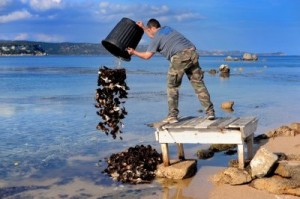Tool Box Talks – Water Pollution Prevention
WHY IS IT IMPORTANT?
It is vital that we manage water properly on site. If watercourses are polluted or unacceptable wastes are disposed of to the sewage system, the Project could be prosecuted affecting our ability to win future work. You do not need to be working close to a river or ditch to cause pollution – any pollutants getting into surface water drains or groundwater can end up in a watercourse which may feed a water supply. The main causes of water pollution include silty water, spillages of oil, fuels or chemicals due to poor storage or handling of materials, & washout from concrete operations.
DO
- Store oils & chemicals in impermeable bunded areas away from drains & watercourses, & from areas of vehicular movement to prevent accidental damage.
- Know your site – be aware of any potentially damaging activities/ materials & any sensitive locations such as rivers & drains.
- Use drip trays under all static plant & during refuelling from mobile plant.
- Store chemicals according to COSHH requirements & store oil in a bunded area with a 110% capacity.
- Ensure that necessary legal consents are in place for any discharge to a watercourse, ground, drain or ditch.
- Report any incidents, no matter how minor to Project Management.
- Keep your eyes open – look out for discoloured water, surface films or ruts leading to watercourses.
- Identify the location of your nearest pollution spill kit station.
DON’T
- Dispose of contaminated or siltly water directly into rivers, ditches or surface water drains
- Leave drip trays to overflow with oil.
- Ignore spillages
- Infringe on the exclusion zone around rivers.
- Refuel or store oil, chemicals, soil or similar materials within 10m of watercourse or drains
- Hose down spills.
- Forget that preventing pollution is easier & cheaper than dealing with it after it has happened
- Allow concrete washout water to flow into any watercourse or drain
QUESTIONS :
– What are the potential causes of water pollution in your work area?
– Are site staff aware of the location of drains & watercourses in their work area?
– What should happen if a drip tray is overflowing with oil?
– Who should pollution incidents be reported to?
– Where is the nearest spill kit station?
– Are site staff aware of the location of drains & watercourses in their work area?
– What should happen if a drip tray is overflowing with oil?
– Who should pollution incidents be reported to?
– Where is the nearest spill kit station?
CARING FOR THE ENVIRONMENT
